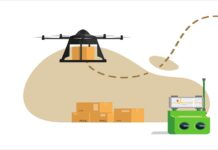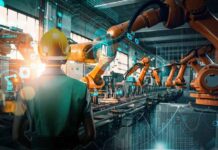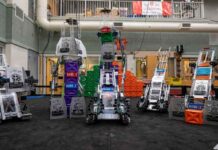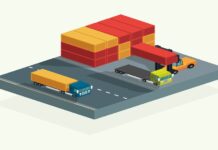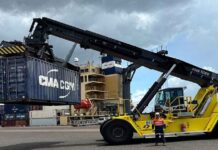Without a doubt, artificial intelligence (AI) and its more advanced derivatives, like machine learning (ML) and generative AI (Gen AI), help supply chain teams work faster, make smarter choices, and make tasks easier.
That being said, these are only rough examples of how this new technology is making the supply chain better and can be used in almost every business or job.
This piece from Supply Chain Digital looks at a few specific ways that artificial intelligence can be used in the supply chain. It also looks at the key technology companies in this area to make sure that businesses are making the most of all the tools they have access to.
The good things about AI for supply chains
Better handling of relationships with providers (SRM)
AI can look at data about how well suppliers are doing to find patterns and trends. This lets businesses pick suppliers based on things like quality, price, stability, and history of sustainability.
Eventually, this leads to stronger, more stable ties with suppliers, which makes the supply chain stronger.
Better predictions of demand
To keep with the theme of analyzing data, artificial intelligence (AI) can be used to look at sales data, market trends, and outside factors like weather patterns or economic signs to get a better idea of what people want.
So, businesses can better plan for the future because they can guess what customers will want and change their product levels to avoid having too much or too little.
Better control over stock levels
Businesses can get the most out of their goods by predicting exactly when and where their things will be needed most with the help of AI-driven data. This has a lot to do with progress in planning and predicting.
Again, this meets customer needs while lowering the costs of keeping extra stock on hand.
Full visibility
One of the best things about AI is that it can combine data from many sources to give companies a full picture of their supply lines.
This lets companies keep an eye on their goods in real time, handle their stock across multiple sites, and most importantly, act quickly if there are any problems.
Automating things that you do over and over
A lot of people know that one of the main reasons so many big companies around the world are spending so much on AI is that it can handle boring tasks like processing orders, sending invoices, and keeping an eye on supplies.
By doing this, mistakes made by people are removed, processes are sped up, and employees can focus on more important tasks that make operations better.
What sustainability means for the environment
AI’s ability to improve operations’ planning by finding the best ways, which cuts down on fuel use and pollution, is something that is being talked about more and more.
It may also help companies keep track of and manage their environmental effect and meet legal standards, all of which help make the supply chain more sustainable as a whole.
Correct maintenance
One of the important benefits of AI is that it can predict when machines and other equipment will break. This lets businesses plan fixes before the breaks actually happen.
In addition to possibly making assets last longer and lowering the cost of upkeep, this cuts down on downtime and lets operations go on as usual for longer.
Customization and making customers happy
Another big benefit is that you can make it your own. Businesses can use AI to look at customer data and give them services and ideas that are more relevant to them.
This better experience for customers will naturally lead to more satisfied and loyal customers.
All-around supply chain efficiency
AI systems can look at a lot of different kinds of data, like shipping costs, manufacturing plans, and arrival times.
This helps companies figure out the best and most cost-effective ways to get goods from providers to customers, which improves the entire supply chain network.
Top companies that make AI for supply chains
AWS supply chain
By adding more AI features, AWS’s supply chain section is trying to give complete access and insights that position the company at the top of the market.
Supply chain managers could use a Gen AI helper like Amazon Q that explains the main risks linked to inventory levels and changing demand and shows the trade-offs between different situations.
C3.ai
The company C3.ai says it has created the first creative AI tool made just for business use.
The company’s tried-and-true AI solutions have already changed the way dozens of complex companies work. C3 Generative AI is built on top of these solutions.
The C3 AI Supply Chain Suite is a group of predictive business AI apps for planning and carrying out the supply chain. These apps help with proactive management instead of reactive management of past events.
SAP
AI, or artificial intelligence, is used in all of SAP’s supply chain systems.
Gen AI technology and the SAP Ariba Category Management system are being combined to help procurement experts come up with thorough and effective category plans more quickly.
SAP is also adding its Gen AI copilot, Joule, to all of its cloud services and plans to soon make it available in its spend control software.
Coupa
With Coupa’s AI-driven efficiency tool, clients can easily avoid delays, confidently weigh trade-offs, and boost profits in their physical supply lines.
The demand modeller is one of the most important parts. Its goal is to make demand tracking, planning, and modeling more accurate and efficient. By combining internal and external data, businesses may use AI to give better context and more accurate demand predictions.
In the meantime, the supply chain modeller uses AI to make bigger networks, stockpiles, and transportation paths work better.
Microsoft
Microsoft has realized that Gen AI can be used in many important ways for supply chain operations. That’s why it added Copilot technology to its ERP suite, which includes Microsoft Dynamics 365 Finance, Dynamics 365 Project Operations, and Dynamics 365 Supply Chain Management.
In March 2023, Microsoft released Microsoft Dynamics 365 Copilot, which was the world’s first AI copilot for ERP and CRM software. With Dynamics 365 Copilot’s next version of AI features, interactive AI-powered help could change the way boring, high-touch tasks are done.
Kinaxis
Kinaxis Maestro (formerly called RapidResponse), a new technology from Kinaxis, is based on artificial intelligence.
Its AI-powered user experience boosts output by helping users learn from documents and best practices, which leads to faster training and better work.
Maestro lets users look at and interact with data in fresh and simple ways by creating panels, scenarios, and other things.
Blue Yonder
Blue Yonder combines artificial intelligence (AI) with a deep understanding of supply networks. This lets companies use AI to make decisions based on big data and handle their supply lines in a dynamic way.
Blue Yonder Orchestrator speeds up supply chain planning and encourages smart decision-making with its cutting-edge Gen AI features.
The technology combines the natural language processing power of huge language models with the intellectual property of businesses in their supply lines to help people make better decisions based on data.




